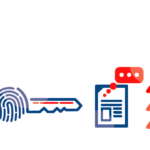This week, we signpost two upcoming webinars about the status of medical information consumption and digital preservation for journals. We highlight the Editorial Reference Handbook – a new set of resources designed to support publishers in taking the steps necessary to make research data FAIRer. We read about the importance of blended data for pharmaceutical excellence and review the updated SDG Publishers Compact Fellows Top Action Tips. Finally, we learn about ORCID’s endorsement of the Barcelona Declaration on Open Research Information.
To engage with:
The status of medical information consumption: a debate via Karger
How do healthcare professionals access medical research information? Are long-form publications fit for a TikTok society? Join Arron Mungul (Founder of Apogee Life Sciences), Jamie Griffin (previous Worldwide Medical Communications Lead at Bristol Myers Squibb), Avishek Pal (Global Medical Director, Cell & Gene Therapy at Novartis), Anna-Lisa Fisher (Global Head of Medical Communications at Boehringer Ingelheim), Louise Ostergaard (Global Publications Director at Novo Nordisk) and Frank Waaga (Head of Medical Engagement at Karger Publishers) on Thursday 27 February as they debate the changing landscape of medical communication and provide their perspectives on the future of research dissemination. Register now to attend the event and receive a recording of the webinar.
Digital preservation for scholarly outputs via WAME
Join the World Association of Medical Editors (WAME) for this webinar on Monday 10 March to explore Archiving, preservation, and long-term access for digital journals. Speakers Alicia Wise (Executive Director at CLOCKSS), Mariya Maistrovskaya (Senior Publishing Support Specialist at the Public Knowledge Project) and Snowden Becker (Community Manager for the LOCKSS Program at Stanford University) will explore how preservation networks can safeguard long-term access to digital journals and how authors, researchers, editors and publishers can advocate for journal preservation. Everyone who registers for the event will receive a recording of the webinar.
To read:
The Editorial Reference Handbook: supporting responsible data sharing via TIER2 | 3-minute read
How can publishers make research data FAIR (findable, accessible, interoperable and reusable)? To answer this question and operationalize a standard practice, a group of 12 publishers, including Springer Nature, Taylor & Francis and Wiley, has developed the Editorial Reference Handbook. The Handbook comprises a checklist, flowchart and guidance to help journal staff, reviewers and authors implement checks for FAIRness of outputs to, ultimately, improve the reproducibility of published research. The Handbook is currently being piloted by participating journals to validate and improve their data-sharing methodologies.
Blended data for pharmaceutical excellence via The Evidence Base | 5-minute read
“Blended data ensures that every aspect of the patient journey … is captured and leveraged to its fullest potential … ,” states this guest column by LexisNexis® Risk Solutions. Complementing a white paper titled Unlocking the power of research-ready data for life sciences, this column outlines the ways in which blended data can drive innovation in pharmaceutical research, including enhancing therapeutic area research, improving drug safety and pharmacovigilance and evaluating long-term patient outcomes.
Updated SDG Publishers Compact Fellows Top Action Tips via SDG Publishers Compact Fellows | 2-minute read
The Sustainable Development Goals (SDG) Publishers Compact Fellows have updated their Top Action Tips for integrating sustainability into research and publishing processes. The Top Action Tips provide easy-to-use strategies and best practices for researchers, educators, publishers, journal editors, policymakers and librarians to help close the gap between practitioners and policymakers. The updated tip sheets can be downloaded individually from the SDG Publishers Compact Fellows website.
ORCID endorses Barcelona Declaration on Open Research Information via ORCID | 2-minute read
The Open Researcher and Contributor iD (ORCID) has announced its institutional support for the Barcelona Declaration on Open Research Information. Signatories of the declaration – which was launched in April 2024 – commit to make openness default, work with services and systems that enable open research information, support the sustainability of open research infrastructures, and accelerate the transition to openness of research information. Through announcing its support, “ORCID recognizes the Barcelona Declaration as an important framework by which scholarly systems can be integrated in a transparent way”, and it reaffirms its commitment to open and transparent research information.
Enjoy our content? Read last week’s digest and check out our latest guest blog!
Don’t forget to follow us on Bluesky and LinkedIn for regular updates!






